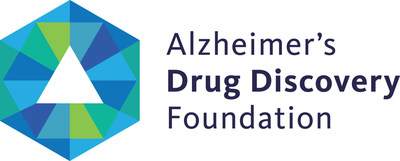Lauder and Newhouse Families Commit Additional
$10 Million to Treat FTD Fund
NEW YORK, May 13, 2024 /PRNewswire/ -- The Alzheimer's
Drug Discovery Foundation (ADDF) and The Association for
Frontotemporal Degeneration (AFTD) announced today the extension of
the Treat FTD Fund through 2035 that was made possible from
additional funding from the Lauder and Newhouse families. This
10-year, $10 million commitment will
provide critical funding for frontotemporal dementia (FTD) trials,
which will advance new therapies and repurposed drugs, ultimately
helping the 1.5 million patients living with FTD globally. FTD, a
historically underfunded disease focus-area, encompasses a spectrum
of neurodegenerative diseases with varied biological mechanisms,
clinical symptoms and prognoses that come with unique challenges
for clinical drug development.

"FTD is a complex disorder, and it will require a personalized
approach for patients that addresses the many underlying biological
processes that contribute to the onset of the disease," says
Howard Fillit, MD, Co-Founder and
Chief Science Officer at the ADDF. "After nearly a decade of the
Treat FTD program, we have witnessed a considerable growth in the
drug development pipeline for FTD, and we are looking forward to
working with our partners at AFTD to continue funding innovative
science for this underfunded area of research."
Started in 2016, the Treat FTD Fund has invested $7 million in early-stage clinical trials,
testing novel and repurposed disease-modifying drugs, as well as
therapeutics for FTD symptom management. The second phase of the
initiative intends to carry on these efforts by validating the
efficacy of drugs in Phase 2 trials with the aim of advancing these
drugs to the next phase of clinical development.
Building out the FTD clinical trial pipeline by expanding the
number of symptomatic and disease-modifying therapies that can be
tested in-clinic will provide FTD patients and their families with
an unprecedented level of hope. This will be integral to
stimulating enrollment for patient registries and accelerating
recruitment efforts for forthcoming trials. By uncovering the most
effective methods to target this unique patient population,
researchers will also be able to conduct biomarker-powered trials
that have proven to be successful in validating a drug's target
engagement, efficacy, and safety.
"FTD presents unique challenges to researchers working towards
the effective treatments that are urgently needed for people living
with this disease," said AFTD Senior Director of Scientific
Initiatives Penny Dacks, PhD.
"However, there is growing momentum behind efforts to develop
treatments. Through the Treat FTD fund, AFTD and our partners at
the ADDF accelerate that momentum by directly funding the
early-stage programs that will often be considered too high-risk
for other investors from the for-profit world."
Considering the similarities between Alzheimer's and FTD's
underlying pathologies, investment in this area will aid in the
development of groundbreaking novel drugs for a broader population
of those living with Alzheimer's and related dementias.
"The ADDF and AFTD are grateful to the Lauder and Newhouse
families for the opportunity to drive new funding and research for
an often-overlooked disease. Together, we are optimistic that we'll
see new drugs on the market over the next decade," concludes Dr.
Fillit.
About The Alzheimer's Drug Discovery Foundation
(ADDF)
Founded in 1998 by Leonard A. and Ronald S. Lauder, the Alzheimer's Drug Discovery
Foundation is dedicated to rapidly accelerating the discovery of
drugs to prevent, treat and cure Alzheimer's disease. The ADDF is
the only public charity solely focused on funding the development
of drugs for Alzheimer's, employing a venture philanthropy model to
support research in academia and the biotech industry. The ADDF's
leadership and contributions to the field have played a pivotal
role in bringing the first Alzheimer's PET scan
(Amyvid®) and blood test (PrecivityAD®) to
market, as well as fueling the current robust and diverse drug
pipeline. Through the generosity of its donors, the ADDF has
awarded more than $290 million to
fund over 750 Alzheimer's drug discovery programs, biomarker
programs and clinical trials in 20 countries. To learn more, please
visit: http://www.alzdiscovery.org/.
About Frontotemporal Degeneration (FTD) and AFTD
Unlike Alzheimer's disease, frontotemporal degeneration (FTD) is a
dementia that primarily affects personality, behavior, language,
and movement. It most commonly onsets between the ages of 45 and
64. Currently there are no approved disease-modifying treatments
for FTD, which affects more than 60,000 people in the United
States and today is always fatal.
The Association for Frontotemporal Degeneration (AFTD) is the
leading nonprofit devoted to helping families affected by FTD
today, and driving research to foster accurate diagnosis,
treatments, and a cure. Our volunteer-founded organization – driven
by thousands of volunteers and donors – reflects a community's
determination to #endFTD.
 View original content to download
multimedia:https://www.prnewswire.com/news-releases/alzheimers-drug-discovery-foundation-addf-and-association-for-frontotemporal-degeneration-aftd-extend-treat-ftd-fund-through-2035-302143643.html
View original content to download
multimedia:https://www.prnewswire.com/news-releases/alzheimers-drug-discovery-foundation-addf-and-association-for-frontotemporal-degeneration-aftd-extend-treat-ftd-fund-through-2035-302143643.html
SOURCE Alzheimer's Drug Discovery Foundation